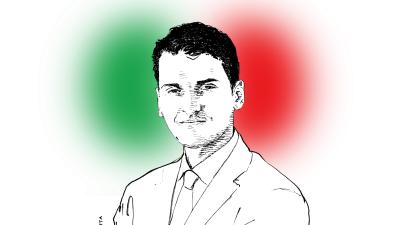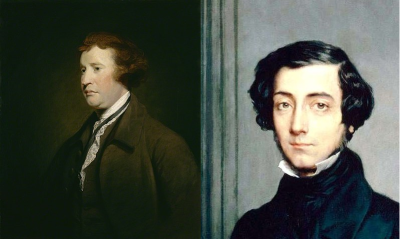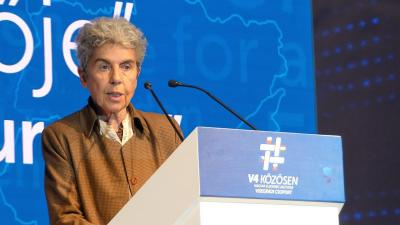The centre-right wins in Lazio and Lombardy and strengthens the government
On 12-13 February 2023, votes were cast in Lombardy and Lazio, two of the main Italian regions where the cities of Milan and Rome are located. Lombardy is one of Europe's most important economic regions with 10 million inhabitants and a gross domestic product higher than many European states. Lazio, as the region of Rome, has particular political weight. The result of these elections was therefore especially important and the centre-right and centre-left started from regions governed respectively by each of them: Lombardy by the centre-right and Lazio by the left. However, the outcome of the vote handed both regions over to the centre-right coalition, which also had an impact on national politics.
Attilio Fontana, a League member supported by the centre-right, was confirmed as president of the Lombardy Region with 54.67%, while the centre-left challenger, Pierfrancesco Majorino, reached 33.93%. Letizia Moratti, candidate for the Third Pole, came third with 9.87%. The first party in Lombardy was Fratelli d'Italia with 25.18%, followed by Pd (21.82%), Lega (16.53%) and Forza Italia (7.23%).
The electoral result was similar in Lazio, where the centre-right managed to snatch the leadership of the region from the PD, with the victory of Francesco Rocca at over 50% of consensus over challenger Alessio D'Amato.
Fratelli d'Italia cashed in over 34%, confirming itself as the first party, the Pd resisted with 21%, while Donatella Bianchi, the RAI journalist chosen by Giuseppe Conte (Five Star Movement) stopped at 12%.
Another element that emerged from the regional elections was abstention, since only 40% of voters voted. In Lombardy, 41.67% of eligible voters went to the polls, but the absolute record is in Lazio: only 37%. Abstentionism undoubtedly played a role in these elections, but to say as the centre-left does that this is a blunt victory for the centre-right is wrong. The left should instead ask itself why it is no longer able to mobilise a large part of its electorate that either does not go to the polls or in many cases votes for the centre-right.
Hence the satisfaction of FdI, Lega, Forza Italia. Matteo Salvini exulted, letting it be known that he had heard both Giorgia Meloni and Silvio Berlusconi on the phone: 'We are all mutually pleased with the team's victory. The teamwork with them works'.
The League held fast in Lombardy despite no longer being the region's leading party. The political force led by Matteo Salvini took home 17%, but the leading political force in the region, which has always been in the hands of the Lega, was Fratelli d'Italia, which held its ground with 26%, while Forza Italia all things considered held its position. In Latium, where Giorgia Meloni's party is the strongest, it exceeds 33%, distancing Lega and Forza Italia by 8.5 and 8.4 respectively.
Meanwhile, the Left is split in three parts (Democratic Party, Five Star Movement and Third Pole) and the mutual accusations of the main exponents for the election outcome continue.
The candidate of the Third Pole in Lombardy, Letizia Moratti, former deputy of Fontana in the region, presenting herself as the candidate of the Third Pole, failed sorely. She didn’t manage to erode any votes to the centre-right in the end, but recorded an overall flop, stopping at 10%. A result that led Action leader Carlo Calenda to say that “the centre and the left have never been in the game, not even united”.
Reactions to the outcome of the vote were not long in coming, starting with the winning candidates. According to the president of Lombardy, Attilio Fontana, it was 'a team victory, carried out in a cohesive manner' by the entire coalition. He added: “I am satisfied that the citizens have understood our ability to face difficult and complicated times,”. “The first feeling is joy for the people of Lombardy who have understood our work. Democracy is here, for it is implemented upon expression of the vote. We must stop delegitimising politics - I think this is the most serious aspect for which we are all responsible. Politics must be valued for the role it has to play within democracy.”
The newly elected governor of Lazio, Francesco Rocca, is of the same opinion: “It was a short but intense race. He goes on to say: “A enormous sense of responsibility now prevails; we need to revive a distant healthcare system that is mortifying citizens. Abstentionism then underlines the fact that 10 years of centre-left rule have alienated citizens. We will strive to bring back trust and participation.”
On the whole, however, the outcome of the elections strengthens the centre-right and the executive led by Giorgia Meloni. She can claim a double victory and wrest from the left the government of another important region such as Lazio. It is not by chance that the Prime Minister said: “Congratulations to Francesco Rocca and Attilio Fontana for their clear victory in these regional elections. I am sure that both will do their utmost to honour the vote and the mandate received from the citizens of Lazio and Lombardy. An important and significant result that consolidates the unity of the centre-right and strengthens the work of the Government.”
Read also
The problem of mass immigration to Europe - a critical analysis
The growing migratory pressure at Europe's borders has shown clearly that, despite the already obvious problems involved, the migratory inflow is not being tackled with the necessary determination by the EU institutions. Yet irregular immigration is a problem that does not concern a single country but the whole of Europe.
Francesco Giubilei
Conservatives and Classical Liberals - What to Choose?
In a political and cultural context as changeable as the contemporary one, any use of rigid categories to define parties and alignments or thinkers and men of culture can be misleading.
Francesco Giubilei
Chantal Delsol: France is a country of riots. And for specific reasons.
Every uprising has its own motives, linked to the events of the day.










Comments (0)